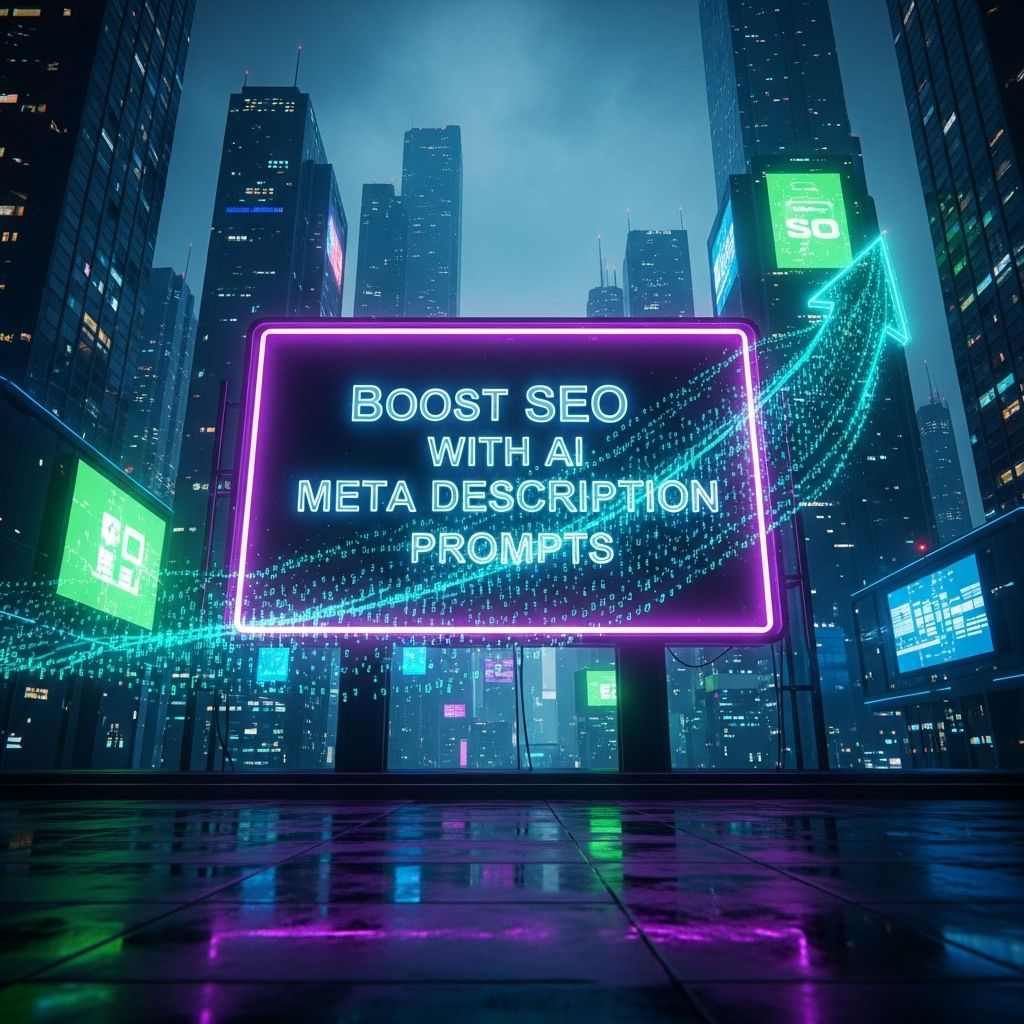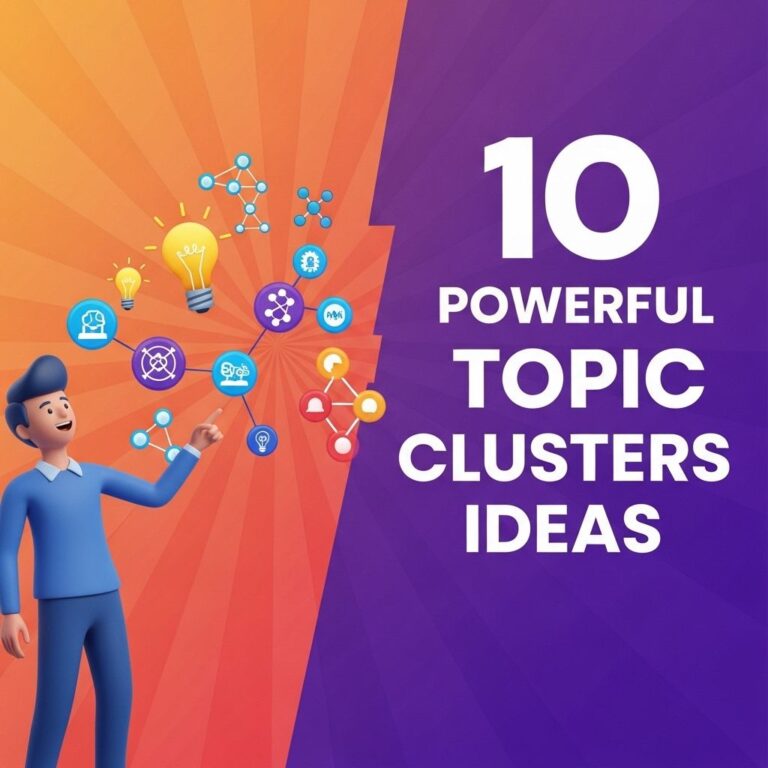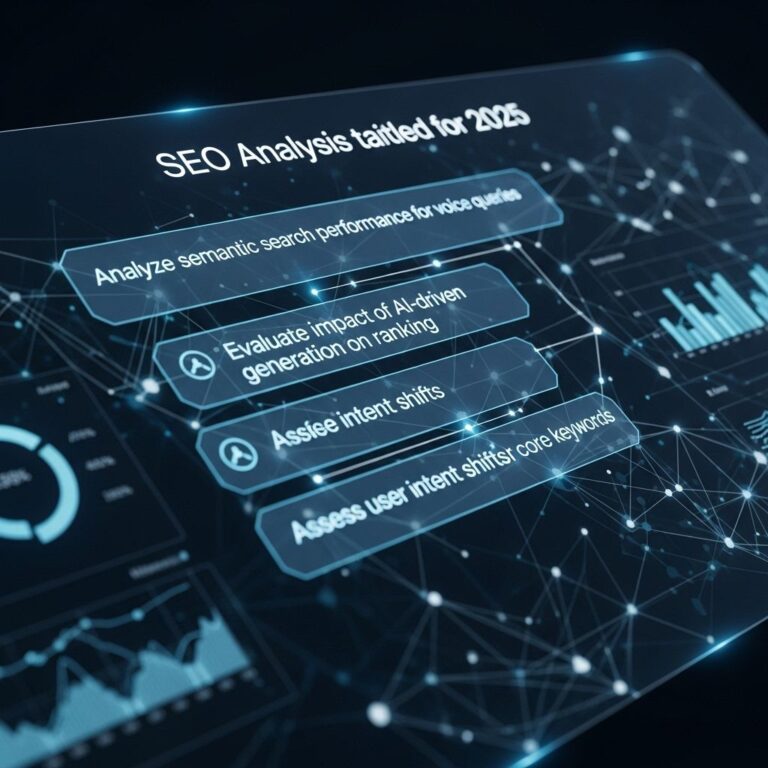In the rapidly evolving world of digital marketing, search engine optimization (SEO) has become increasingly crucial for businesses aiming to enhance their online visibility. One of the key elements to effective SEO is crafting engaging and informative meta descriptions. With the advent of artificial intelligence, marketers can now leverage AI tools to generate compelling meta description prompts that not only attract clicks but also improve search rankings. This article delves into how AI can be utilized in generating optimized meta descriptions, providing you with actionable insights and practical tips.
Boosting your SEO can be significantly enhanced by utilizing AI-generated meta description prompts. These prompts help in crafting compelling and relevant snippets that improve click-through rates. To complement your digital presence, consider enhancing your branding with quality materials, such as how to use gold logo mockups.
Table of Contents
Understanding Meta Descriptions
Meta descriptions are short snippets of text that describe the content of a webpage. These descriptions appear in search engine results beneath the page title and URL, serving as a summary that entices users to click through. A well-written meta description can significantly enhance a page’s click-through rate (CTR) and ultimately lead to better ranking on search engines.
Key aspects of effective meta descriptions include:
- Length: Typically between 150-160 characters.
- Relevance: Should accurately reflect the content of the page.
- Engagement: Must be compelling enough to encourage users to click.
The Role of AI in SEO
Automation and Efficiency
AI has revolutionized many aspects of SEO, particularly in automating repetitive tasks and enhancing efficiency. With AI tools, marketers can analyze large datasets to identify trends and patterns that inform their SEO strategies.
Content Creation and Optimization
AI can assist in content creation by generating keyword-rich content, analyzing competitors, and optimizing existing content. In the context of meta descriptions, AI technology can help produce variations that align with the target keywords while maintaining an engaging narrative.
Generating AI-Powered Meta Descriptions
Here are several approaches to harnessing AI for generating meta descriptions:
1. Using AI Tools
| AI Tool | Features |
|---|---|
| GPT-3 | Natural language processing, content generation, and summarization capabilities. |
| Surfer SEO | Content optimization suggestions, keyword analysis, and AI-generated meta descriptions. |
| Frase | Content briefs, keyword optimization, and automated meta description suggestions. |
2. Crafting Prompts for AI
When working with AI tools, the prompts you provide can significantly influence the quality of the output. Here are several examples of effective prompts:
- “Generate a concise meta description for a blog post about the benefits of using AI in digital marketing.”
- “Create an engaging meta description for a product page selling smart home devices.”
- “Write a meta description that highlights the key features of our new app for managing personal finances.”
3. Tailoring to Your Audience
Understanding your target audience is essential when crafting meta descriptions. AI can analyze user behavior and preferences, allowing marketers to tailor their prompts to resonate with their audience effectively. Consider the following:
- Identify the pain points of your customers.
- Use language that speaks directly to your audience’s needs.
- Incorporate action-oriented phrases that encourage clicks.
Best Practices for Optimized Meta Descriptions
To maximize the effectiveness of your meta descriptions generated through AI, follow these best practices:
1. Incorporate Keywords Naturally
While it’s essential to include relevant keywords in your meta descriptions, they should flow naturally within the sentence structure. Avoid keyword stuffing, as this can detract from the overall quality and readability.
2. Focus on Unique Selling Points (USPs)
Highlight the unique features or benefits of your content or products within the meta description. This can help differentiate your listings from competitors in search results.
3. Utilize Call-to-Actions (CTAs)
Including a strong CTA can prompt users to take action. Phrases like “Learn more,” “Discover now,” or “Get started today” can effectively drive traffic to your site.
Evaluating Meta Description Performance
Once meta descriptions are implemented, it’s crucial to measure their performance to ensure they effectively contribute to your SEO goals. Key performance indicators (KPIs) to consider include:
- Click-Through Rate (CTR): Measure the percentage of users who click your link compared to the number of impressions.
- Conversion Rate: Track how many users complete desired actions after clicking.
- Bounce Rate: Analyze how many visitors leave your site after viewing only one page.
Conclusion
Leveraging AI to generate optimized meta descriptions can significantly enhance your website’s visibility and performance in search engine results. By understanding the importance of meta descriptions, utilizing AI tools effectively, and adhering to best practices, marketers can craft compelling descriptions that resonate with their target audience. As the digital landscape continues to evolve, integrating AI into your SEO strategy will be essential for staying competitive and achieving online success.
FAQ
What is an AI-generated meta description?
An AI-generated meta description is a concise summary created using artificial intelligence algorithms that accurately reflects the content of a webpage to improve its visibility on search engines.
How can AI boost my SEO efforts?
AI can enhance SEO by analyzing data to generate optimized meta descriptions, identifying relevant keywords, and suggesting content improvements that align with search engine algorithms.
Why are meta descriptions important for SEO?
Meta descriptions are vital for SEO as they provide a brief overview of webpage content, influence click-through rates, and help search engines understand the page’s relevance to user queries.
Can AI create unique meta descriptions for each page?
Yes, AI tools can generate unique meta descriptions for each page by analyzing the specific content and context, ensuring that each description is tailored for optimal performance.
What should I include in an effective meta description?
An effective meta description should include target keywords, a clear call-to-action, and a concise summary of the page’s content, while keeping it within 150-160 characters.
Are there any tools for AI meta description generation?
Yes, there are several AI tools available for generating meta descriptions, such as SEMrush, Moz, and various content optimization platforms that utilize machine learning.



